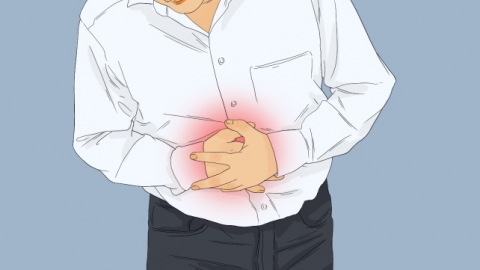What symptoms are associated with atrophic gastritis?
In general, atrophic gastritis may be accompanied by symptoms such as indigestion, loss of appetite, upper abdominal discomfort, gastrointestinal bleeding, and malnutrition. It is recommended to seek timely medical attention, identify the underlying cause, and undergo symptomatic treatment under the guidance of a qualified physician. Detailed analysis is as follows:

1. Indigestion
Atrophy of gastric mucosa leads to reduced gastric function and insufficient secretion of gastric acid and digestive enzymes, resulting in inadequate digestion of food. Patients may experience symptoms of indigestion such as bloating, abdominal distension, belching, and nausea.
2. Loss of Appetite
Atrophic gastritis can affect the function of gastric glands, leading to reduced secretion of gastric acid and digestive enzymes, which may impair appetite. Patients may experience symptoms such as decreased appetite and reduced food intake.
3. Upper Abdominal Discomfort
Atrophy of gastric mucosa causes a decline in the protective barrier function of the gastric mucosa, making it more susceptible to damage from irritants such as food and gastric acid, which can cause upper abdominal pain.
4. Gastrointestinal Bleeding
Atrophy of gastric mucosa leads to thinning of the gastric mucosal layer, exposing blood vessels, which can be easily damaged and bleed due to irritation from gastric acid or food.
5. Malnutrition
Atrophy of gastric mucosa and reduction in gastric glands can lead to insufficient secretion of gastric acid and digestive enzymes, preventing adequate absorption and utilization of nutrients from food, thereby causing malnutrition.
Patients may follow medical advice to use medications such as omeprazole enteric-coated capsules, lansoprazole enteric-coated tablets, and ranitidine hydrochloride tablets for treatment. At the same time, developing healthy eating habits, maintaining regular meal times, and avoiding overeating can help the body recover.








